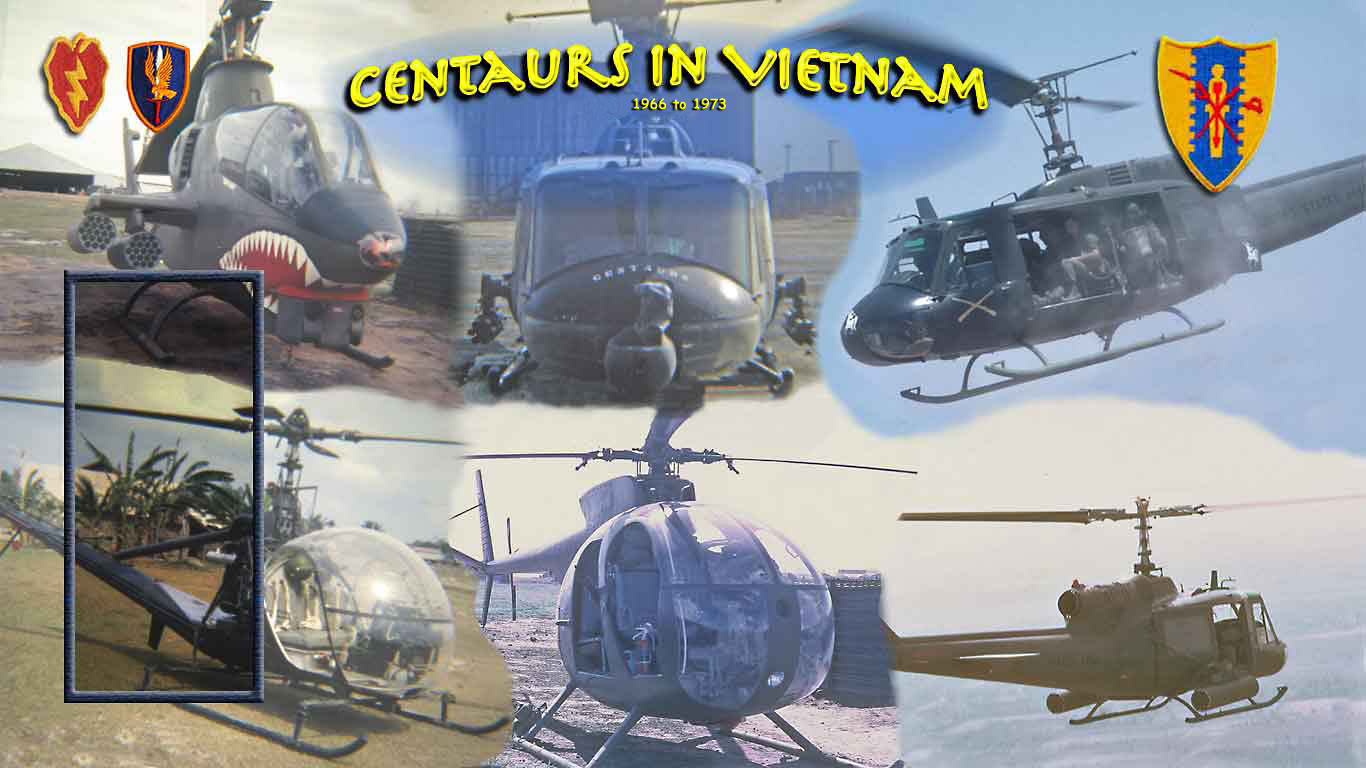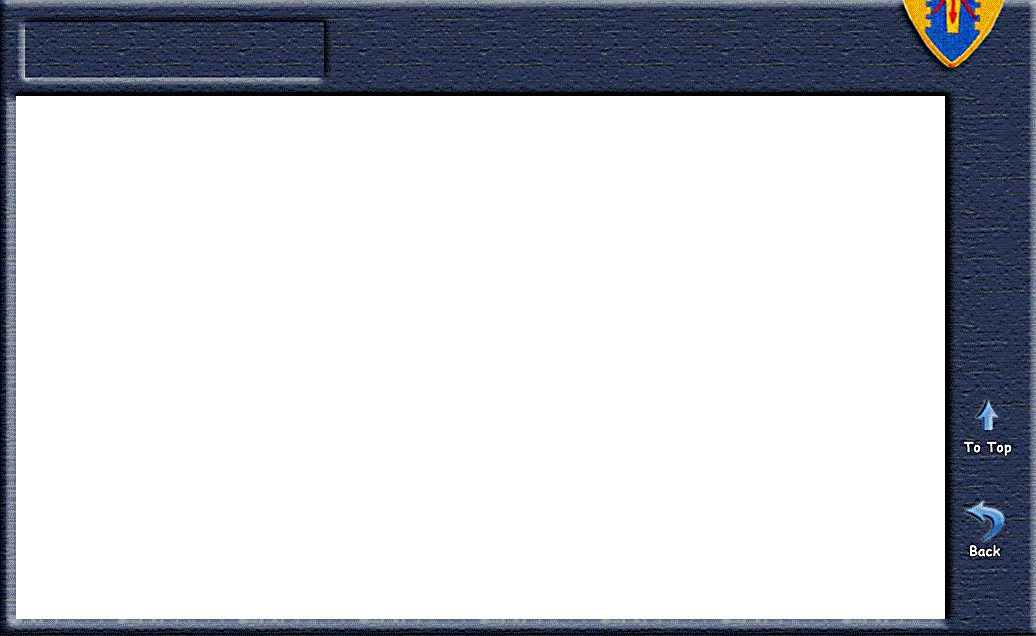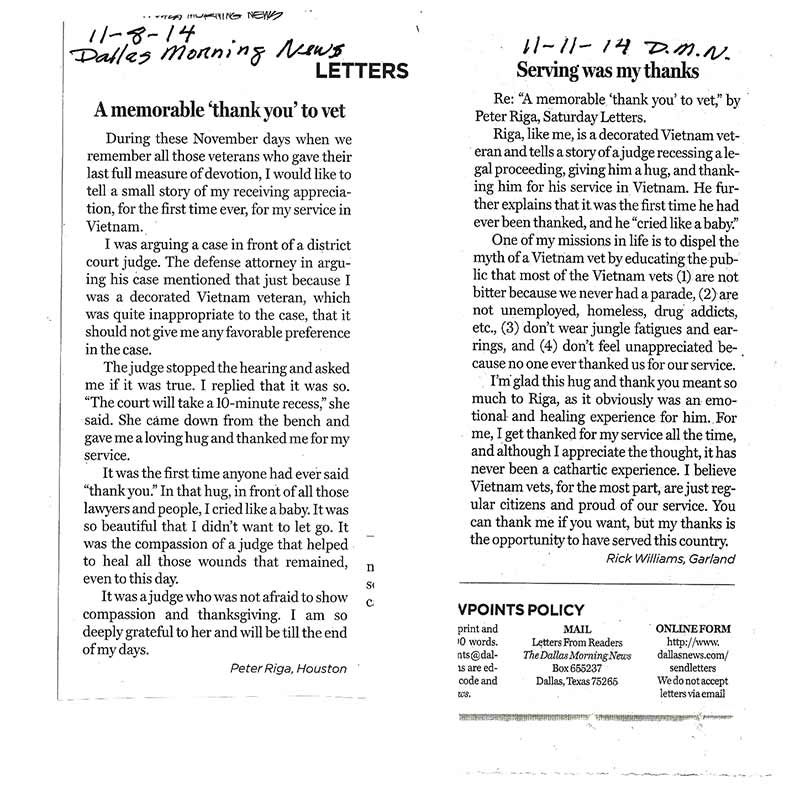

Moose Marcinkowski, Rick Williams,Tom Fleming, John Kelly, Pat Eastes, Bill Hull
also view "What's a Veteran?" by Rick Williams
Moose Marcinkowski (8Nov2014): Just prior to the San Antonio reunion, Rick Williams sent an email that showed how Delta Airlines folks treated returning war dead from the conflicts in Iraq and Afghanistan. It was well done, complete with an honor guard and very moving. It brought to mind an incident that has remained with me for years.
In November of 1968 my father became seriously ill and was not expected to survive so I was sent home on emergency leave. The only plane available was a C-141 out of Tan Son Nhut.. It was filled with coffins. While given the choice of waiting for another bird, I declined. I had to get home. The flight to Travis was uneventful and, as I was preparing to leave the aircraft, I watched the coffins being unceremoniously unloaded by a forklift. Compare that to Delta's honor guard and even the respect shown at Dover AFB with honor guards and flag draped coffins.
It is gratifying to see how troopers are treated today as opposed to how they were treated when they came home from Vietnam. In my mind it was a national disgrace. When a young trooper came home, other than family, it was as if he had to sneak into town. Here was a young man who did as his country asked and he received no recognition or thanks for his duty done. Now when a local unit returns from a deployment it's a cause for celebration and so it should be. If a soldier is KIA it is cause for great sadness. A young Marine from our church was killed in Afghanistan. At his funeral there wasn't a seat in the house. The governor was there as was the Congressional delegation as well as a contingent of Marines in full dress uniforms. The choir was in full voice, and the Mass was a moving tribute to this young man whose potential will never be realized. There must have been at least 50 police motorcycle escorts from towns near and far.
The comparison of how veterans were treated then and how they are treated now is black and white. Around here Veterans Day is more than a day off or a day to go shopping. There are ceremonies or parades in every town to honor veterans. Schools have special events to thank those of us who served. People thank us for our service all the time. So things are different and we should be grateful the attitude towards the real one percent has changed.
To my fellow troopers thank you for your service. I will be forever proud to be a Centaur and a member of the 3/4 Cav.
Rick Williams (11Nov2014): My letter to the editor (below) in Dallas Morning News today

Tom Fleming (11Nov2014): Great post and great response to the previous article. I feel very much the same as you do about my service and the service of others who served in Vietnam. My post-Vietnam experience with the antiwar movement was not as smooth. Upon return from my second tour in Vietnam in 1971 I was posted to Syracuse University (my alma mater) for graduate studies and to serve as a Military Science instructor in the ROTC Detachment. Contrary to the past practices of the ROTC Cadre I wore my uniform to work and on campus between classes and to University functions. The disrespect and abuse that was directed toward me and my uniform by students and faculty was ugly and intense. None the less I held my head high and refused to be intimidated by this vocal minority and proudly fulfilled my duties. In the years 1971 to 1975 Syracuse University and most college campuses in the North East were hot beds of anti-War sentiment. In recent years Syracuse University has returned to normalcy and the ROTC Detachment is a respected and prideful element of the university community. The Chairman of the Joint Chiefs of Staff General Martin Dempsey last week made a presentation to the University assembly at Hendrik's Chapel and was well received.
John Kelly (11Nov2014): When I returned I found myself on the front line of protests as NYC Police Officer, protecting the Mayor's mansion. I was yelled at, pushed and shoved and called all sorts of vile names, until I cracked one of the protestors (just a little) I was pulled from the line by a supervisor and sat out the rest of the night on a PD bus with the rest of the returned veterans and now cops. A quick blow for our side (the supervisor later told me he wished he would have done it)
Pat Eastes (11Nov2014): In the 80s and 90s, all of a sudden it became in vogue to be a VN vet. I had encounters with lots of wannabes when I was a cop, who wanted to say that their VN service was the cause of their criminal behavior. In almost every case, they turned out to be either non vets or they never served in VN. One of my favorites was a dickhead that was always getting busted for petty theft, usually wearing a jacket with all kinds of vet stuff on it. As I remember, he was born about 1960, so no wonder he was screwed up from his service, since he was about 10 years old when he was in VN.
When I retired from the PD and went to work as a vet rep, I saw lots more wannabes that either never set foot in VN or wildly enhanced their tours. I ran Freedom of Information requests on several of these, and was happy to let them know that they were liars. One was a Navy guy who was supposedly all screwed up from his war experiences; turns out he was an E2 'laundryman's assistant' on a ship at sea. I guess all those dirty drawers were just too much for him.
It's interesting how we, in some form or fashion, met with hostility upon our return. For me it was bootstrapping at the University of Tampa. There were usually about 150 officers and senior NCO's going through the program. for the most part we were met with curiosity and questions but there were some fraternities that gave us grief for being VN vets with open distain. However, like Tom we kept our eyes on getting a degree and worked at integrating ourselves into university life. We usually were the leaders of every honor society, we fielded a team in all intramural sports and generally raised the level of academics by challenging instructors. When we did graduate it was usually with senior honors. by setting an example we were able to turn doubters into believers. We knew who we were and what we went through. So we kept our heads high and pressed on.
By the way the fraternities who hated us always played dirty in flag football. But there is an old adage about age and experience being better than youth and exuberance. We gave better wee got. They didn't mess with us after the first game.
Rick Williams (12Nov2014): I agree the differing experiences upon returning home was to a great degree a function of geography. Texas is not to be confused with Syracuse, Berkley, etc. If you'd have returned to be an ROTC instructor at Texas A&M instead of Syracuse, it would not have been the same, but one does have loyalty to their alma mater.
Bill Hull: (9 Feb 2016): I had two memorable experiences in regard to 'Coming Home';
The first took place around March 17th 1967. I was returning on my first extension leave. When we arrived at Oakland we had a police escort to get us through the protesters that were waiting for us. Being required to travel in class A uniforms, issued at Travis, passing through Chicago I was met with a bit of hostility but I got on the plane to Minneapolis eventually. I arrived in Minneapolis on Good Friday and as the plane taxied to the terminal the pilot announced that all military personnel were to remain on the plane until the civilian passengers disembarked. At that point an Air Force Office and a state patrol officer boarded the plane and announced that because of 'disorder' in the streets we would not be permitted to leave the terminal in military uniform. If we did not have any civilian clothes to change into the airport USO had clean used clothing to give us. I guess it was unfortunate that I arrived home on the weekend that massive riots started across the country.
In December of 1968 I reported for duty at Ft Knox, KY. Being a returning Viet Nam veteran I was assigned to the post Honor Detachment for six months of temporary duty. During that six months the only duty we preformed were funerals in a 5 state area. On two occasions we required a police escort to get passed protesters to enter the home of surviving families to pay our respects. After protesters at grave sites started to actually try to knock the knock the casket out of the pallbearers hands, the firing squad was instructed to form up on either side and escorted the casket to the grave site. Eventually the OIC and NCOIC were issued sidearms and wore loaded weapons on burial details.
I guess some of us did develop some bitterness regarding our reception home. Years later, at the dedication of the Minnesota Viet Nam Veterans' Memorial I was approached by a couple who apologized for our treatment by protesters and stated that they were shocked as they watch the treatment of returning vets by protesters on TV. They wanted me to know that 'it was only a small percentage' of people who were out on the streets protesting and disrespecting veterans. My reply was that the real shame that the larger percentage of American sat home and did nothing other than watched it on TV while we bore the brunt of the protests.